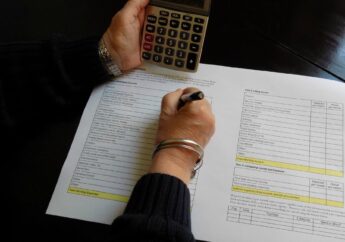Choosing The Best Savings Account For You Needs
by Abdul Aziz Mondal Banking Published on: 01 June 2018 Last Updated on: 30 January 2026

Saving for the rainy day is something that every person should do. Whether it is about saving for your child’s education or keeping aside some funds as your retirement plan, you should look for ways to make the money grow while it is being saved. Amongst the most popular methods to save money is a savings account and there are plenty of options in these accounts. Considering this fact, it is important to know about all these options so that you can choose the one that works for you. Also, factors such as the need to access the money from the account, the locking period and your willingness to pay the tax, have a direct bearing on the kind of savings account you choose. Here are some facts and guidelines about choosing the best savings to account for your need.
Easy-access Savings Accounts :
As the name suggests, easy-access savings accounts enable you to withdraw the money from it easily and quickly. The modes of withdrawal may be different, varying from over-the-counter withdrawals to online withdrawals and those done using a plastic card. This type of savings account is ideal for you if you foresee a need to spend money anytime in the near future. The best thing to do is to put away your ‘emergency savings’ in this kind of account because you can save and at the same time, have the flexibility to withdraw funds anytime you may need them.
However, there are some aspects to be careful about. The mode of withdrawal and its ease determines the kind of account you should choose. Some easy-access accounts may restrict the number of withdrawals that can be made within a year without bearing any loss of interest. Many accounts offer an introductory ‘bonus’ interest rate which might be fixed for a period of 12 months, though the rate may fall after the expiry of this period. Finally, ensure that you get an optimal rate of return on the account by comparing it with other available options.
Notice Savings Accounts :
Another option is noticed savings accounts which require you to inform the account provider in advance if you want to withdraw the funds. The notice period may vary from 30 to 60 or 90 days, which makes this option unsuitable for you if you want emergency funds at any point in time. In case you do need to take out money without a notice, you will have to incur a loss of interest. This option gives you a limited flexibility considering that you can avail your money but the process has some limitations.
The downside of this type of account is that you may not get anything extra for putting your money in restricted access. Additionally, notice accounts usually serve variable interest rates and it is better to opt for another type of savings account if the deal does not earn you a competitive interest value.
Regular Savings Accounts :
The next on this list is a regular savings account, which requires the depositor to put in some saving each month, without skipping any month. This option works well for people who are just initiating a savings routine and want to make sure that they stick to it. The number of withdrawals from this account is restricted. At the same time, the amount of saving put in a very month may be restricted too as you may be allowed to invest only a certain sun in a month.
Lack of flexibility in terms of deposits and withdrawals is the biggest disadvantage of investing in regular savings account. Moreover, they may not be as great as they appear in terms of growth of investment. The interest rate offered may be impressive-looking but it may not be effectively that attractive as the money builds up gradually. This type of account is not the best alternative if you want to save a large amount of money as a lump sum. Another thing that you should confirm before putting your money in this account is whether the interest you get on it is fixed or variable.
Fixed-rate Bonds :
Fixed rate bonds refer to the savings accounts which, as the name implies, offer a fixed interest rate on the money deposited for a specified period of time. The interest rate on this account is higher as compared to the ones mentioned above, but it does not allow you to withdraw any money prior to the completion of the bond term. The term may be between 1 year to 5 years and the interest rate goes higher with the length of the bond term. In case you need to access some money in the emergency, a heavy penalty will be imposed on the interest. For this reason, you should invest in it only if you are sure that you will not be needing money before the end of the bond term.
On the downside, you may not earn a competitive interest rate on a fixed rate bond if the market rates go up (though it protects you from the risk of falling interest rates in the market). Many fixed-rate bonds need a large initial deposit, which means that they may not work for you if you are a beginner. Flexibility in terms of savings as well as withdrawal is, therefore, the biggest concern if you are looking to save in a fixed rate bond. You can click here to learn more about the fixed rate savings accounts.
Before putting your money in any of these savings accounts, evaluate and compare them carefully. Understanding your own requirements first is significant as you need to consider parameters like the amount you want to invest and the period you want to invest it for. The most critical factor is whether you require withdrawing funds in an emergency or can manage the contingencies without any problem. After all, it is your hard earned money that you need to save for the future and you should look for a way that is reliable and ensures excellent growth in the long run.
Read Also :



































































































